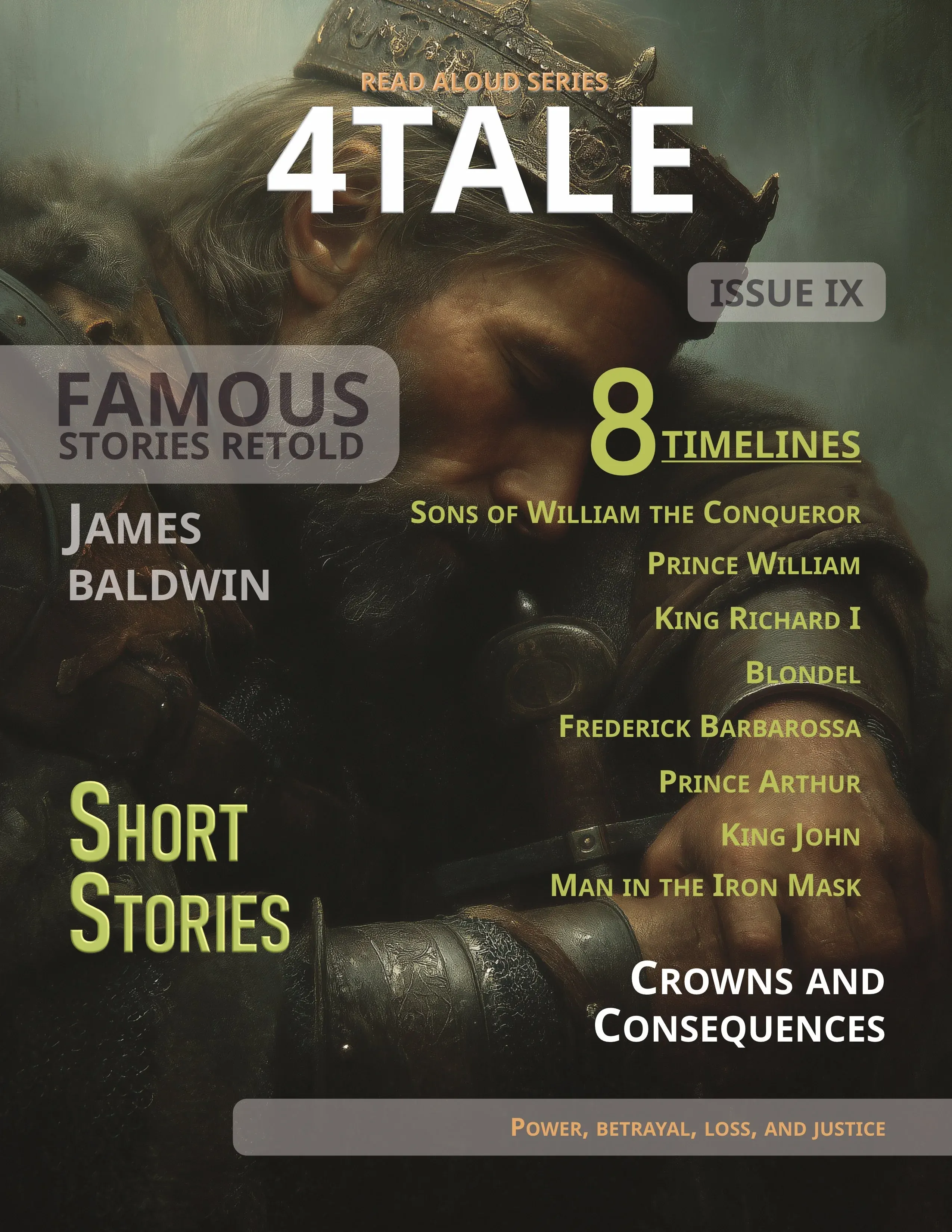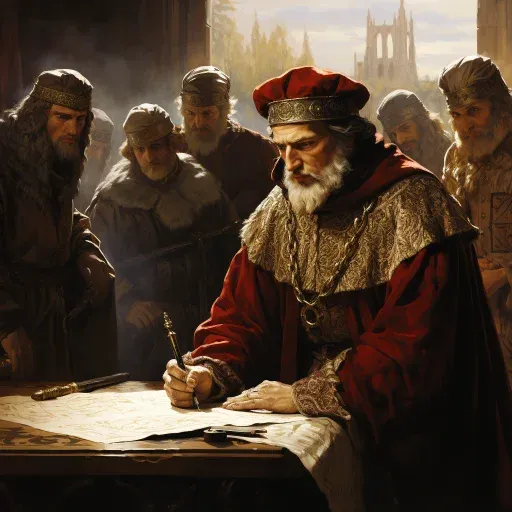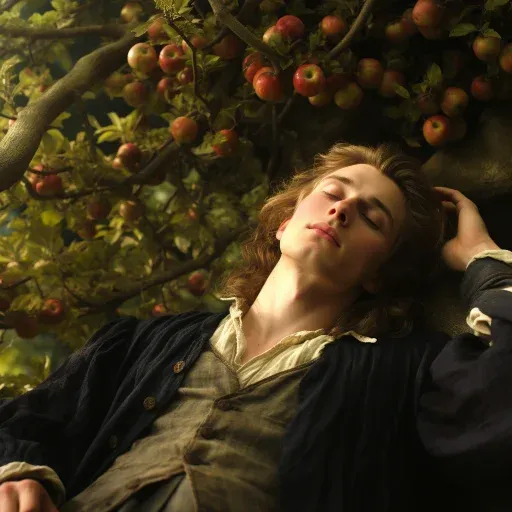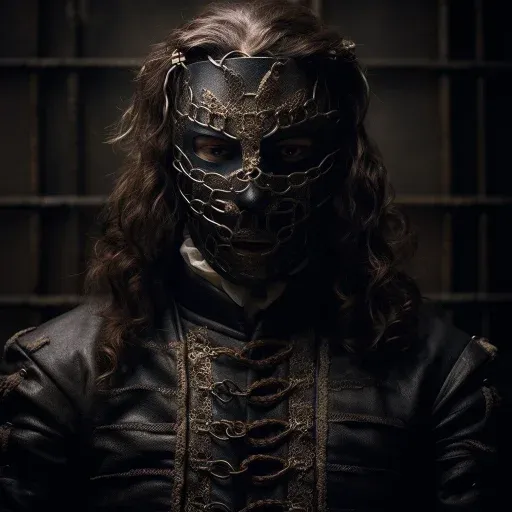BY JAMES BALDWIN
Frederick Barbarossa
Famous Stories Retold: Story 20 of 30
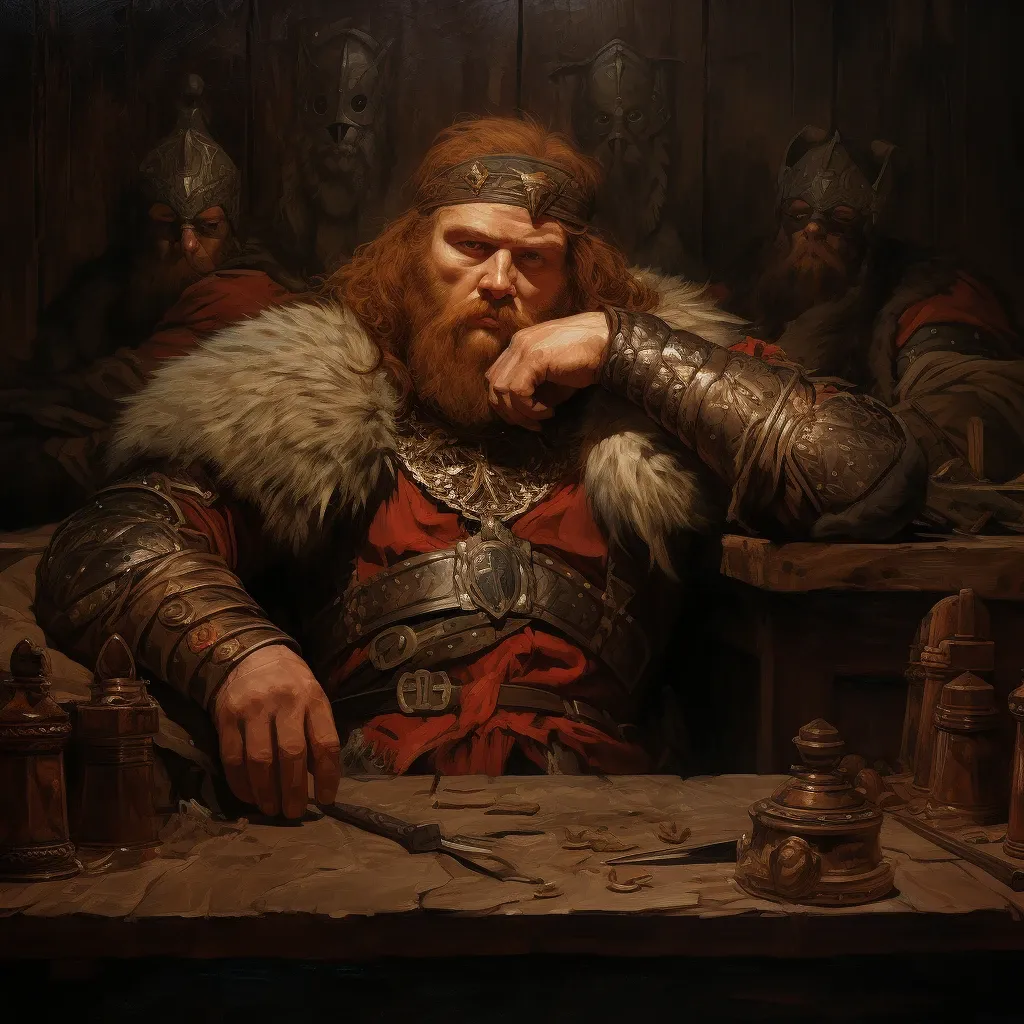
Heading

Crusader: Barbarossa led the Third Crusade to the Holy Land but tragically drowned in the Saleph River in Asia Minor before reaching his destination.
Legendary Figure: According to legend, Barbarossa did not die but instead sleeps in a mountain, awaiting a time when Germany will need him again.
A good book we like, we explorers. That is our best amusement, and our best time killer
- Roald Amundsen, Explorer
Barbarossa's Myth: Blending History and Legend
Immerse yourself in the life and legend of a medieval monarch who reigned supreme yet remains shrouded in mystery. This tale transports us to the realm of Frederick Barbarossa, a king whose courage in battle was only matched by his stubborn determination. His story, a compelling blend of historical fact and captivating mythology, echoes through time, reminding us of the undying spirit of humanity. Brace yourselves as we embark on a journey, peeling back the layers of time to reveal a hero, a symbol of resilience, locked in the heart of the Kyffhäuser Mountain, awaiting his destined hour to rise once more.
The Reign of Frederick Barbarossa: Power and Fear
Many remember Frederick Barbarossa as the feared and powerful king of Germany. His reign was marked by battles and wars fought for glory, even in his old age. Frederick was never content to live peacefully, yearning for adventure and conquest. His rule was a testament to his indomitable spirit and unyielding power, carving a name for himself in the annals of history. His name invoked fear in his enemies, and his actions made him a legendary figure in Germany and beyond.
The Red-Bearded Warrior: An Unquenchable Spirit
Frederick Barbarossa was well known for his distinctive red beard, a symbol of his fiery spirit and determination. His warrior spirit was untamed, even as he aged. He was a man who was never satisfied with peace, choosing instead to immerse himself in the chaos of wars and battles. His red beard became his identity, a testament to his relentless spirit and an emblem of his indomitable courage. It distinguished him from others, just as his unquenchable spirit set him apart as a remarkable leader.
Dive Deeper 'Timeless Wisdom' Podcast
Video with Captions and Visualizer
The Holy Land and the Saracens: A Call to Defend
The moment the Holy Land was seized by the Saracens, Frederick Barbarossa answered the call for help. He rallied his army with the intention of defending it. The journey was fraught with challenges, the most perilous being a broad stream in Asia Minor. The army hesitated, daunted by the dangerous water, but Frederick, ever the fearless leader, was undeterred. He urged them forward, leading the charge. Unfortunately, the current was too powerful, and the knights, along with Frederick, were swept away. Despite the tragic outcome, this event further bolstered Frederick's reputation as a devoted and courageous leader.
The Broad Stream Tragedy: A Leader's Sacrifice
In the annals of time, few tales echo the tragedy of Frederick Barbarossa's last military campaign. When the Holy Land was under threat from the Saracens, the German king and his army embarked on a challenging journey to protect it. As they encountered a broad stream in Asia Minor, the army hesitated. The treacherous waters proved a formidable obstacle, but the indomitable king, embodying the spirit of a true leader, urged his knights forward.
Frederick led the way, displaying a courage that is etched in the annals of history. But the ferocious current was relentless and, in a tragic twist, swept away the king and his knights, claiming their lives. This devastating incident, known as the 'Broad Stream Tragedy,' marked an abrupt end to Barbarossa's reign in the mortal world.

The Kyffhäuser Mountain Legend: A King in Waiting
The tales of Frederick Barbarossa did not end with his tragic death. Legend has it that the king did not die but entered a deep slumber in the great hall of the immortals, nestled within the heart of Kyffhäuser Mountain. According to the tales passed down through generations, he has been waiting for the right time to rise and conquer the world once again.
The legend speaks of a majestic hall where Frederick and his knights rest, their spirit undimmed by the passage of time. They are in a state of waiting, a testament to the indomitable will of the king who once led them. The legend of Kyffhäuser Mountain adds a layer of mystique to the already fascinating life of Frederick Barbarossa.
The Shepherd's Song: An Incomplete Prophecy
As the centuries rolled by, a shepherd, lost in the mountain, happened upon the eternal resting place of Frederick and his knights. Stirred awake by the shepherd's song, the slumbering king inquired if the eagles still circled the mountain. This, according to the legend, was the prophesied sign of his time to rise.
However, the prophecy remained unfulfilled. Upon hearing from the shepherd that the eagles still circled the mountain, Frederick ordered his knights back to sleep, signifying that their time had not yet come. This tale, known as the Shepherd's song, leaves us with an incomplete prophecy and a world still awaiting the return of the red-bearded warrior-king.
Conclusion
The tale of Frederick Barbarossa intertwines reality with myth, painting a vivid portrait of a fearless leader, who even in his supposed death, is but a sleep away from reclaiming his glory. This chronicle serves as a testament to his indomitable spirit, a red-bearded warrior waiting for the opportune moment in the heart of the Kyffhäuser Mountain. His story, though steeped in the annals of history, will forever remain alive, a symbol of resilience that transcends time. For as long as the eagles circle the mountain, Barbarossa's legend will continue to inspire, a beacon of humanity's unwavering spirit.

